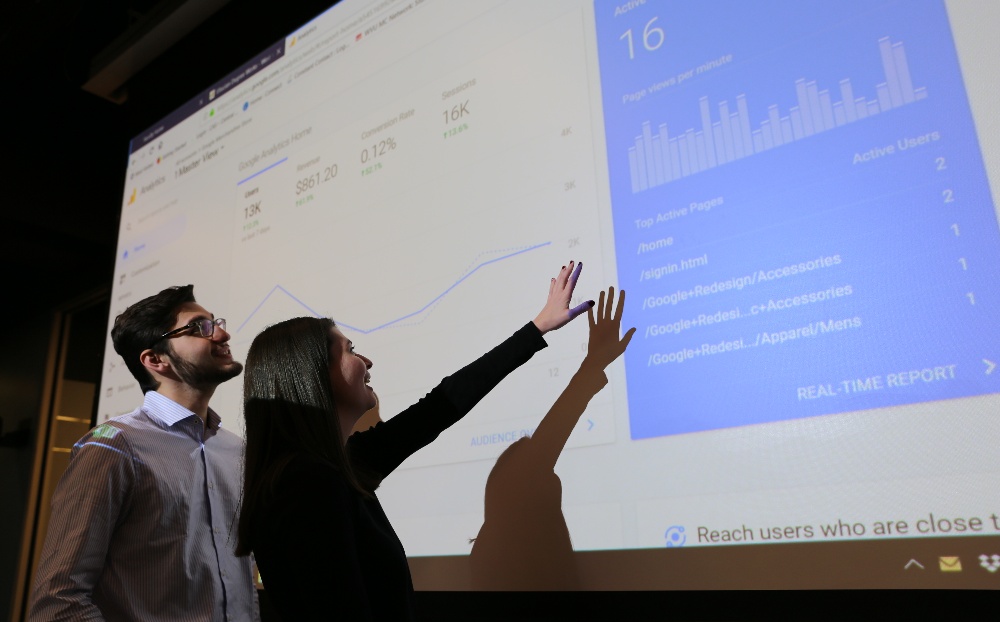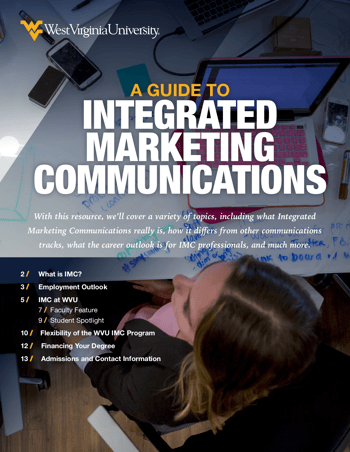 As individuals, we face a deluge of information unprecedented in human history, from the screens we carry in our pockets to broadcast media, from traditional print to emerging AI technologies. As marketing communications professionals, we should be asking ourselves a crucial question: How can we, as professional communicators, propel our message, reach our target audience, remain relevant, and experience professional success in a competitive industry like marketing communications?
As individuals, we face a deluge of information unprecedented in human history, from the screens we carry in our pockets to broadcast media, from traditional print to emerging AI technologies. As marketing communications professionals, we should be asking ourselves a crucial question: How can we, as professional communicators, propel our message, reach our target audience, remain relevant, and experience professional success in a competitive industry like marketing communications?
Success in today’s fast-moving marketing communications field requires mastering consistent brand messaging and understanding how to implement data-driven action plans throughout all facets of a marketing campaign. But not only do you want to keep up in this field: You want to stay ahead of the competition and become a sought-after thought leader in your organization and your industry. A graduate degree that focuses on integrated marketing and data-driven communications will accelerate you to the top of this high-powered field, prepare you for success in an array of competitive career environments, and increase your professional ROI.
What is the ROI of a graduate degree?
In a business sense, return on investment “is a performance measure used to evaluate the efficiency of an investment or to compare the efficiency of a number of different investments.” In other words, ROI measures the gain (or the loss) generated on an investment relative to the amount of money invested. While ROI is often used when examining financial outcomes, ROI can also be used to measure personal gain and professional satisfaction.
Choosing to attend graduate school is an investment — plain and simple. And for professionals hoping to thrive in the competitive marketing communications landscape, a graduate degree is the investment needed for:
- Staying relevant and succeeding in the marketing communications industry
- Avoiding redundancy and promoting innovation
- Seeing a real return on investment, both personally and professionally
With that in mind, the marketing communications professionals at West Virginia University’s Reed College of Media launched two innovative graduate degree programs that are designed for forward-thinking marketing communications professionals looking to invest in their future as thought leaders: Integrated Marketing Communications and Data Marketing Communications.
Marketing communications professionals who study Integrated Marketing Communications and Data Marketing Communications, which are both pioneer graduate programs, are better able to execute integrated marketing campaigns and navigate the competitive world of marketing — an industry that is evolving at lightning fast speed and that requires ambitious, passionate marketing professionals.
So, how will obtaining a cutting-edge graduate marketing communications program — like Integrated Marketing Communications or Data Marketing Communications — result in real ROI when it comes to your professional future?
Here are several industry indicators that we use to evaluate the ROI of an advanced marketing communications degree:
1. Salary ranges are higher for marketing professionals in senior roles.
For marketing professionals who have taken steps to sharpen their skills and broaden their knowledge in order to understand how to create, implement, and analyze integrated marketing campaigns, the career options are vast, and the career outlook is bright. According to the Bureau of Labor Statistics, marketing professionals who are working at a senior level make an average of $132,230 a year. In 2016, the lowest 10 percent earned less than $68,490, and the highest 10 percent earned more than $208,000.

U.S. News & World Report examines salary ranges for senior marketing professionals and corroborates BLS’s finding that marketing managers make an average of $132,230 annually. Additionally, U.S. News reports that the best-paid 25 percent of senior marketers made $180,070 that year, while the lowest-paid 25 percent earned $94,110.
While the salary ranges for senior marketing professionals and marketing managers are lucrative, it’s important to remember that most marketing agencies and in-house marketing departments seek out and give preference to professionals who hold a graduate degree in a related discipline. Obtaining a graduate degree in marketing communications will result in career acceleration, a lucrative salary, and increased promotion opportunities.
2. Careers are available to marketers with a deeper understanding of marketing strategies.
Rooted in data-driven strategies, marketing communications is a fast-growing field, and there is strong career potential for those who are equipped to take leadership (which a master’s degree in IMC or DMC would provide). Below are five specific career options for marketing communications professionals who understand the need for integrated marketing campaigns and who aren’t afraid to harness the power of data:
-
SEO/Marketing Manager — SEO managers work with a variety of departments to help track SEO performance, also known as "organic" performance, of more than one blog or website page.
-
Marketing Technologist — Senior technologists who work in marketing develop strategies as well as test, find, and select technology that powers marketing strategies.
-
Content Marketing Manager — The content marketing manager works with content creators and strategists to oversee big-picture editorial campaigns.
-
Social Media Strategist — Social media strategists help you decide which social networks to keep accounts on, which content to post and where, for maximum reach.
-
Digital Brand Manager — Managers who work in digital branding help implement the digital vision for company brands across all digital channels, which includes growing brand awareness, overseeing development, content creation, and social media.
3. Staying relevant in today’s evolving marketing landscape requires advanced knowledge:
In today’s information-saturated society, we have more data readily available than ever before. That said, the marketing communications industry has a significant talent gap: a lack of professionals who are marketing-minded and who have the ability to understand data in the context of a marketing campaign.
Professionals who are able to bridge the gap by taking their knowledge of data acquired in a graduate degree program and applying it to integrated marketing campaigns establish themselves as relevant, valuable assets in a variety of marketing spheres.

In a 2018 Forbes interview with Tom Benton, the CEO of the Data & Marketing Association (formerly known as the Direct Marketing Association), he discusses the impact that data is having on marketers and why having a solid understanding of data-driven marketing communications in today’s evolving marketing landscape is necessary for compelling storytelling in marketing:
“I view data as fundamental to marketing. It has a horizontal impact across the organization, cutting across media, advertising, innovation, and everything else ... media is ubiquitous, mobile, and interactive and so it’s generating a tremendous amount of data. Historically, we didn’t have high-quality data but now we do. And so the question is: how do you take data and transform it into actionable insight? The consequence of this is that the increased amount and substantially better quality of data makes the marketer’s job more complex. This can affect what they do and the challenges that they face.”
Without understanding the impact of data to improve marketing campaigns, marketing professionals run the risk of being replaced by professionals who have the skills to implement strategic action plans that are rooted in data. Obtaining an innovative graduate degree in marketing communications will give you the skills and knowledge needed to establish yourself as a competitive thought leader in the rapidly-evolving marketing industry.
Integrated Marketing Communications and Data Marketing Communications at WVU:
The graduate programs in Integrated Marketing Communications (IMC) and Data Marketing Communications (DMC) at West Virginia University’s Reed College of Media offer two great options for professional communicators who want to thrive in the dynamic marketing communications landscape. Both graduate programs are the first-of-their-kind online programs where you can learn cutting-edge skills from leading experts at an R1-status institution.
Since both of these graduate programs are offered 100 percent online, students are able to earn an advanced degree in these pioneer disciplines from anywhere in the world. Both the IMC and DMC graduates programs provide flexibility for success whether you’re a full-time student or already working in the industry — at any career stage.
Integrated Marketing Communications:
In the Integrated Marketing Communications online program, you’ll master the art and science of directing a consistent brand message to your target audience through diverse media platforms. As a discipline, IMC is designed to coordinate advertising, direct marketing, public relations, and sales into strategies that ensure your message consistently rises above the background noise. Integrated Marketing Communications at WVU is a human-centered methodology that equips students with the skills and understanding to succeed in competitive agency settings where integrated marketing campaigns and story-centric strategies are valued and utilized.
IMC students learn how to implement consistent, integrated messaging into marketing campaigns by taking courses like the following:
Beginning in Fall 2019, IMC students will have even greater opportunities to customize their Integrated Marketing Communications degree with a declared Area of Emphasis (AOE). Included on your transcript when you graduate, these specializations broaden your knowledge base, making you more competitive in the job market. Students will be able to specialize their IMC degree in areas like:
-
Creative Strategy — prepares IMC students for careers that focus on the creative aspects of integrated marketing communications including work focused on advanced creative concepts, digital storytelling, content creation, and content creation.
-
Data Marketing Communications — provides access to data-driven coursework for IMC students whose career aspirations including harnessing the power of available data as part of a greater integrated marketing communications strategy.
-
Digital and Social Media — prepares IMC students for careers that utilize digital and social media by exposing them to coursework focused on social media, web metrics and SEO, digital storytelling, and video production.
-
Healthcare Communications — equips IMC students to succeed in careers that focus on developing integrated marketing communications within the healthcare industry by exposing them to coursework that is focused on legal and ethical issues in the healthcare industry, content marketing, and new technology utilization.
-
Higher Education Marketing — prepares IMC students for careers utilizing integrated marketing communications strategies for student recruitment and institutional branding initiatives by focusing on coursework related to higher education marketing, multicultural marketing, content marketing, and social media.
-
Management — provides access to coursework in leadership, negotiations, management information systems, and ethics so that IMC students can apply the skills in traditional business administrative settings.
-
Public Relations Leadership — exposes IMC students to coursework focused on applied public relations, crisis communication, internal communications, and C-suite leadership, in turn preparing students for careers leading a public relations department or running their own PR firm.
Data Marketing Communications:
The Data Marketing Communications program teaches you to harness the power of data to deliver your integrated messages most effectively. This data-driven marketing discipline empowers students to utilize metrics and analysis for best results. It equips you to employ such strategies as targeting, profiling, and segmentation in sophisticated ways that maximize your clients’ bottom line.
Most people know the power of data, but few have the expertise visualize the data and to make data-driven marketing work. Data Marketing Communications at WVU prepares you with the skills needed to succeed in a market that continues to place emphasis on data-driven insights and action plans. As a DMC student at WVU, you’ll take courses like:
DMC students have the opportunity to add one particular Area of Emphasis (AOE) to their graduate degree. Included on your transcript once you graduate, the Integrated Marketing Communications specialization is intended to broaden your knowledge base, make you more competitive in the job market, and demonstrate your level of expertise in data-driven marketing and integrated marketing communications.
Are you ready to make yourself irreplaceable in the marketing communications industry while increasing your ROI?
As the current marketing communications industry shows no sign of slowing down, pursuing an advanced marketing communications degree is a great investment for your professional future. WVU’s Integrated Marketing Communications and Data Marketing Communications graduate programs at the Reed College of Media are economical, flexible, and are fueled by the expert faculty carefully selected to teach by West Virginia University.
Empowered to learn integrated marketing strategies or master data-driven communications, you’ll see your career rise above the competition and set the pace for your industry. If you’re interested in accelerating your career in this evolving field, we encourage you to contact us today.










